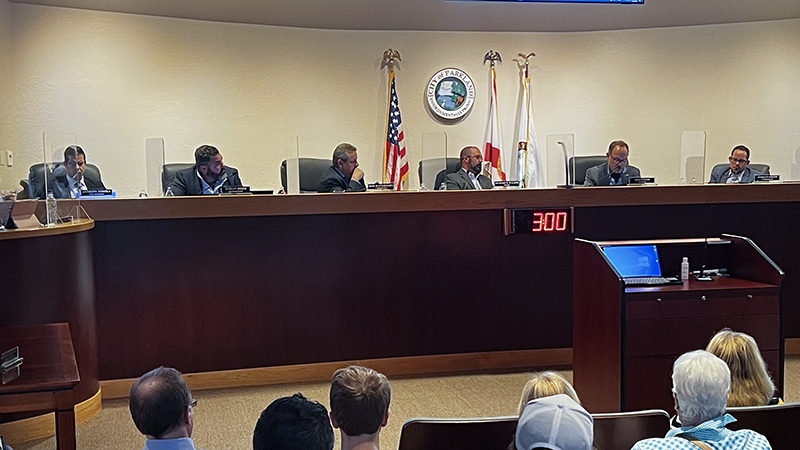
{Parkland Talk}
By Bryan Boggiano
The Parkland city commission tabled a resolution at their March 1 meeting that would have urged Governor Ron DeSantis and the Florida Department of Education to rescind the exclusion of AP African American Studies from the state’s curriculum.
Parkland’s resolution follows Lauderhill and Miramar, which passed similar resolutions on January 30 and February 1, respectively. Coral Springs unanimously passed a similar resolution at their March 1 meeting.
On January 12, the Florida Department of Education notified the College Board Florida Partnership that it did not approve of the inclusion of the course because it is “inexplicably contrary to Florida law and significantly lacks educational value,” according to city documents.
The course’s rejection came after the governor signed the Stop WOKE Act and Parental Rights in Education Act into law in 2022, which limits classroom discussions on race, gender, and sexuality.
At their meeting, City Attorney Anthony Soroka said since the state’s original rejection of AP African American Studies, there had been further developments.
The College Board, which administers AP courses and oversees AP exams, subsequently revised the course’s structure and lecture materials.
The revised AP African American Studies is still under state review. Following the state’s evaluation, Broward County Public Schools will review the course material.
The tabled resolution does not mention this information.
Commissioner Ken Cutler, who introduced the resolution, said teaching all aspects of history matters, including Black and Jewish history. He said knowing history’s good and bad parts is necessary for students.
“Good government and good knowledge of our history and our past will help us make a better future,” he said.
He stated he would have no issue tabling the resolution, considering subsequent events.
Commissioner Bob Mayersohn echoed Cutler’s move to table the resolution. He made the decision following conversations with the county and subsequent developments with the state, county, and the College Board.
“I think it’s too premature to vote on something that has untimely information in the resolution,” he said.
In his remarks, Mayor Rich Walker said as nonpartisan elected officials, the commission runs the risk of creating divisions by considering matters he considers partisan.
He stated the resolution was “not born from an educational issue,” and if the city gets involved in politics, they have the ability to make things worse.
“As an elected official or as a citizen, you have the right to express your feelings in certain areas,” he said. “But to make decisions as a city, that is something we need to be extremely, extremely careful of doing.”
Commissioner Jordan Isrow agreed with Walker’s comments on politicization but thought the city should have a say in the issue. He said the issue of education impacts students, the community, and the state, and the commission could speak out in a nonpartisan, fact-based matter.
“History, in its essence, is supposed to be about facts,” he said. “For certain issues, I worry if we completely are passive…we are feeding into a political agenda as opposed to actually standing up for more of the educational purpose behind it.”
Ultimately, Cutler moved to table the resolution. Vice Mayor Simeon Brier seconded the motion. The commission voted unanimously to table the resolution to an undetermined date.
Send your news to Parkland’s #1 Award-Winning News Source, Parkland Talk. Don’t miss reading Tamarac Talk, Coral Springs Talk, Coconut Creek Talk, and Margate Talk.
Author Profile

Related
 NewsNovember 22, 2023Parkland City Commission Recognizes 2 ‘Mayor for a Month’ Participants
NewsNovember 22, 2023Parkland City Commission Recognizes 2 ‘Mayor for a Month’ Participants NewsNovember 13, 2023Jordan Isrow Named Parkland’s New Vice Mayor
NewsNovember 13, 2023Jordan Isrow Named Parkland’s New Vice Mayor NewsNovember 12, 2023Parkland Commission to Vote on $600K in Upgrades for Wedge Preserve Park Development
NewsNovember 12, 2023Parkland Commission to Vote on $600K in Upgrades for Wedge Preserve Park Development NewsNovember 3, 2023Soldier Rush Obstacle Course Competition Races into Parkland Nov. 11
NewsNovember 3, 2023Soldier Rush Obstacle Course Competition Races into Parkland Nov. 11










